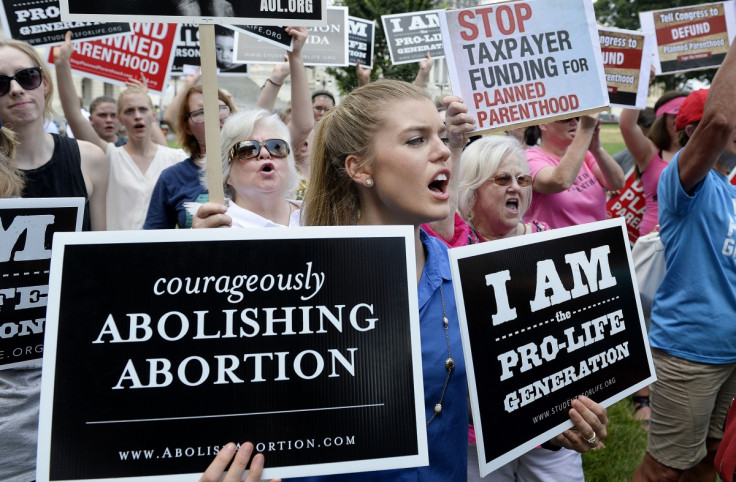Shout Your Abortion: We need to stop pro-life rhetoric fuelling abortion stigma

Thousands of women around the world have been sharing their experiences of having an abortion to end the stigma surrounding the procedure. In a backlash against a campaign to close state-funded abortion clinics in the United States, the hashtag #ShoutYourAbortion gained traction over the weekend but was quickly hijacked by anti-abortion activists.
Pervasive abortion stigma continues to impact women's experiences of reproductive healthcare, despite the procedure being a common and crucial aspect of women's healthcare and family planning. Abortion has been legal in the US since Roe vs Wade in 1973 and since the 1967 Abortion Act in the UK, but it is still shrouded in shame. Many women still feel unable to talk openly about having an abortion, in the belief they have done something wrong.
The problem of abortion stigma, as shown by the commandeering of the #ShoutYourAbortion campaign, is exacerbated by anti-abortion, pro-life campaigners. Hiding behind a façade of concern for women and their health, pro-life arguments are based on promoting shame and the censure of women. Such arguments endorse the belief that women are unable to make decisions regarding their own bodies – and the rhetoric itself is often couched in emotive propaganda about protecting women from the trauma of abortion.
Only by opening up dialogue about the pro-choice movement can we stop the pro-life campaign fuelling the abortion debate. Most importantly, it counteracts rhetoric which serves only to curtail women's reproductive freedoms.
Difficult decision but no regrets
Taking back pro-choice rhetoric also offsets the pro-life argument that the majority of women regret having an abortion – a claim that is unsubstantiated. While choosing to have an abortion can be a difficult decision, the vast majority of women who have undergone a safe, legal abortion have said it was the right choice for them. In the US, where abortion remains a key battleground four decades on from legalisation, a recent study found 95% of women don't regret having the procedure.
Societal stigma is more likely to encourage women to report negative emotions after having an abortion, though. It is a cycle of same perpetuated by pro-life activists: they hail abortion as immoral and shame women for goes through with the procedure, and then when women experience the damaging consequences, the anti-abortion community holds it up as evidence to support their cause. Shaming women who have had an abortion - or who want an abortion - encourages isolation at a time when they may need support the most.
Stigma also acts as a barrier to prevent access to safe, legal abortions, instead forcing women to seek dangerous and life-threatening alternatives. Restricting access to legal abortions never stops an abortion. As seen in Ireland, where abortion is illegal, prohibition has created a devastating two-tier system in which the wealthier travel abroad for the procedure and the poor seek backstreet operations. Unsafe abortions are a major contributor to maternal deaths, killing an estimated 47,000 women around the world every year.
As pro-life campaigners dominate discussion about abortion, it dictates the way society talks about it and ultimately, the way policymakers legislate it. Encouraging more women to talk freely about their abortions could reverse this dynamic.
© Copyright IBTimes 2024. All rights reserved.






